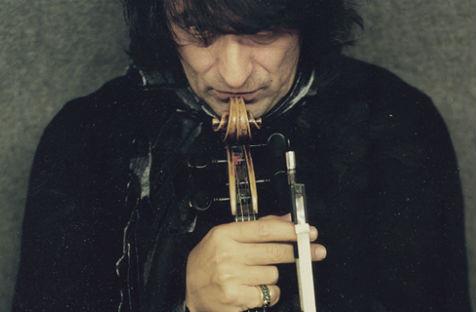It’s always a curious affair, I find, when the audience is different from what you expect, though to be perfectly honest, I’m not sure what it was that I felt I would find at the Concert Hall on the day Yuri Bashmet and the Moscow Soloists came to town.
I suppose I didn’t expect for there to be as many relatively inexperienced concert-goers in attendance as there might be at, say, a Lang Lang concert. But there they were, and there they could be heard clapping between movements with much enthusiasm.
(Now, dear reader, I should point out my utter ambivalence on the question of inter-movement applauding. I don’t do it myself, but I don’t feel any sort of fury towards others that do, for I think there’s quite a bit of merit in refreshing the aural palette, as it were, between sections of a piece, and applause is often far more effective than the barrage of coughs being held back by desperate audience members not wanting to disturb the piece as it’s in progress. But, in general, the more clapping between movements, the less seasoned the concert goer, I think. And it’s good to have new blood in the Opera House, because the current audience isn’t going to live forever.)
There were also a lot of Russians, from what I could see, and I think Yuri Bashmet was counting on them being there as well. When, after the rather nice concert he gave, he was called out onto the stage for an encore, he sprayed out into the auditorium a seemingly random sequence of foreign phonemes, followed by a word that sounded like ‘poika’, which one assumes was meant to be translated as ‘polka’.
The piece was certainly a dance, and, after various bits of phrases and notes (and even mere sounds) had been passed around the strings in the ensemble (and it was only strings that were on stage, much like the Australian Chamber Orchestra), it accelerated into a lively beat, before disintegrating and reintegrating again, and so on. The second encore, which sounded like ‘Happy Birthday <untranslatable> in the Java-style’ (which perhaps means he likes his coffee?), was a potent little number as well.
The concert began, however, with Grieg’s Holberg Suite, Op.40. It was underwhelming, but not necessarily in a bad way. Indeed, there was a restraint to it that, for me at least, acted as a bit of barrier to my involvement. This was a problem with a few of the pieces throughout the afternoon. I found there was this aura of ease emanating from the players that was slightly off-putting as if a master was going through the motions. Sure, the master can do it better than most people, but that doesn’t mean you don’t want him to look like he’s not trying.
There were plenty of lovely moments in the Grieg, but no exciting ones. Bruch’s Kol Nidrei for Viola and Strings, Op.47 followed, with Bashmet playing the viola, and it was diverting but not much else. It wasn’t until we came upon the Mozart – his Divertimento No. 1 in D major K136, that everything started to come together, with a flowing quality and unforceful dynamic choices that created a performance which chugged along nicely without excessive pyrotechnics.
After the interval was Paganini’s Concertino in A minor for viola and strings, and here Bashmet fared better as a soloist, though the piece as a whole was not a performance that one will remember forevermore. The Tchaikovsky that followed, however – his Serenade for Strings in C major, Op. 48 – was superb. Building on the same kind of energy that brought the Mozart to life, Bashmet drew from his players a finely balanced journey that kept one’s interest for its entirety. Not quite the brilliant concert I’d hoped for, but a worthy afternoon nonetheless.
Rating: 4
Yuri Bashmet and the Moscow Soloists
Yuri Bashmet (viola), Moscow Soloists
Concert Hall, Sydney Opera House, Saturday 18th May 2pm
Edvard Grieg – Holberg Suite, Op. 40
Max Bruch – Kol Nidrei, for viola and strings, Op. 47
Wolfgang Amadeus Mozart – Divertimento No. 1 in D major, K136
Niccolo Paganini – Concertino in A minor for viola and strings
Pyotr Ilyich Tchiakovsky – Serenade for Strings in C major, Op. 48





